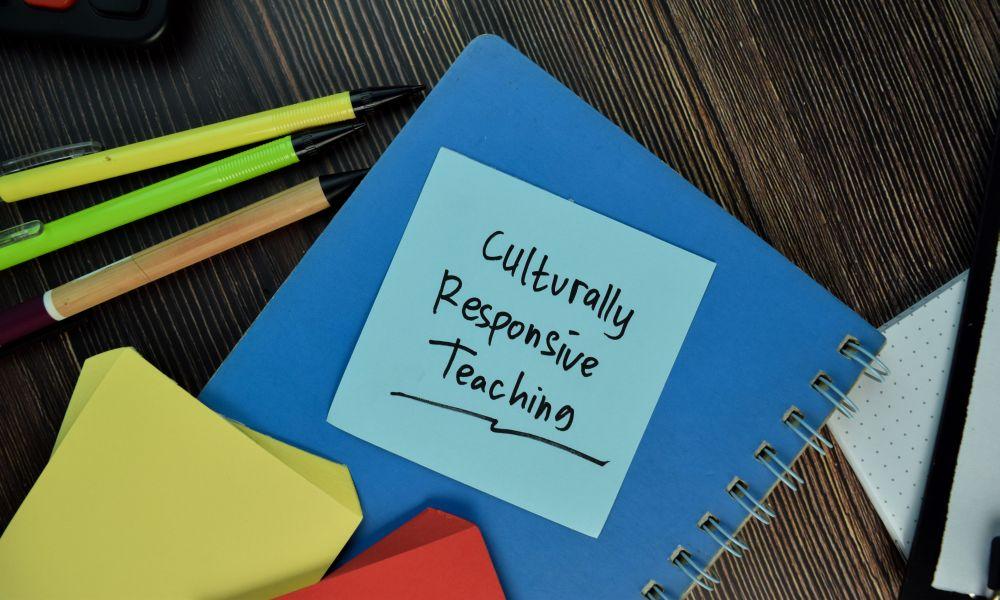Welcome to this edition of Researching education: 5 further readings. In this series, we take a look at some further readings available on a particular topic, including open access research papers from various online databases, and Teacher archive content you might not have come across yet.
In this edition of Researching education: 5 further readings, we’re sharing 5 pieces of content on the topic of culturally responsive teaching. Culturally responsive teaching seeks to improve the experiences and academic achievements of marginalised and minoritised learners by embracing students’ diverse cultures, languages, and experiences to create learning environments that students’ feel represented and engaged in.
In the resources below, you can read research into building cultural competence among teachers, how to further develop culturally responsive pedagogies, and more.
If you are interested in reading more on the topic, beyond the resources included in this article, then be sure to visit Learning Ground – a database of over 10,800 books, articles, conference papers and reports on Indigenous education from Australia and abroad.
- Building a culturally responsive Australian teaching workforce.
The authors of this report write that ‘all staff within education systems must build their cultural responsiveness if there is to be genuinely positive shifts in achieving more equitable educational opportunities, experiences, and outcomes for Aboriginal and Torres Strait Islander students.’ This project identifies and provides practical guidance on the processes teachers and school leaders can undertake to critically understand, continually develop, and effectively exercise their cultural responsiveness.
- Talking about culturally responsive approaches to education: teacher professional learning, Indigenous learners and the politics of schooling. In this report published in The Australian Journal of Indigenous Education (AJIE), the authors discuss, deliberate and despair about the state of the education system for Indigenous students. They also discuss, with optimism, how CRS (culturally responsive schooling) might become embedded in teaching and learning, through teacher professional learning, in ways that are relevant to the Australian context.
- Bringing culturally responsive pedagogies and Reggio Emilia education principles into dialogue. ‘Over 2 decades of research have shown that Aboriginal children are still not benefiting from inclusive early childhood education,’ according to this 2020 report from the University of South Australia. The report examined how educators can enact culturally responsive pedagogies in South Australian early learning settings engaging with Reggio Emilia education principles. As part of this, the authors propose an assets-based approach to curriculum and pedagogy, where ‘rather than foregrounding the capabilities and knowledges that children do not bring to the learning site, educators start by with working with the ‘funds of knowledge’ and capabilities that children actually do bring.’
- Aboriginal cultural educators teaching the teachers: mobilising a collaborative cultural mentoring program to affect change. In this paper published in The Australian Educational Researcher, the authors analyse an Aboriginal cultural mentoring project for non-Aboriginal teachers. The project positions Aboriginal people front and centre as cultural and educational experts, supporting non-Aboriginal teachers in implementing culturally responsive curriculum and pedagogies in their classrooms.
- Cultural responsiveness in learning communities: A focus on Aboriginal and Torres Strait Islander Peoples. This resource highlights common strategies for understanding and respecting Aboriginal and Torres Strait Islander ways of knowing, being and doing. The strategies outlined are derived from a literature review by the Australian Institute of Aboriginal and Torres Strait Islander Studies (AIATSIS), which evaluated the relevant literature in culturally responsive pedagogy in schools. The review suggests ways for educators to embed culturally responsive practices in education contexts, with suggestions ranging from educators learning about local knowledge, language and cultures to holding children and young people to high expectations and building trust and partnerships with families.
Some of the resources featured in this article can be found through the Cunningham Library Catalogue or at EdResearch Online. At the links below, you can search for more resources on the topic of culturally responsive teaching in these 2 online databases.
- Culturally responsive teaching: Cunningham Library Catalogue
- Culturally responsive teaching: EdResearch Online
You can also browse other education topics at this page.
The Cunningham Library membership is open to individuals, schools and organisations. Membership includes access to a comprehensive collection of education research literature; weekday alerts to a selection of Australian education news; fast supply of articles and books from the collection; support in finding research; and an integrated online search tool that works across all our resources.
To become a library member, visit the website.



